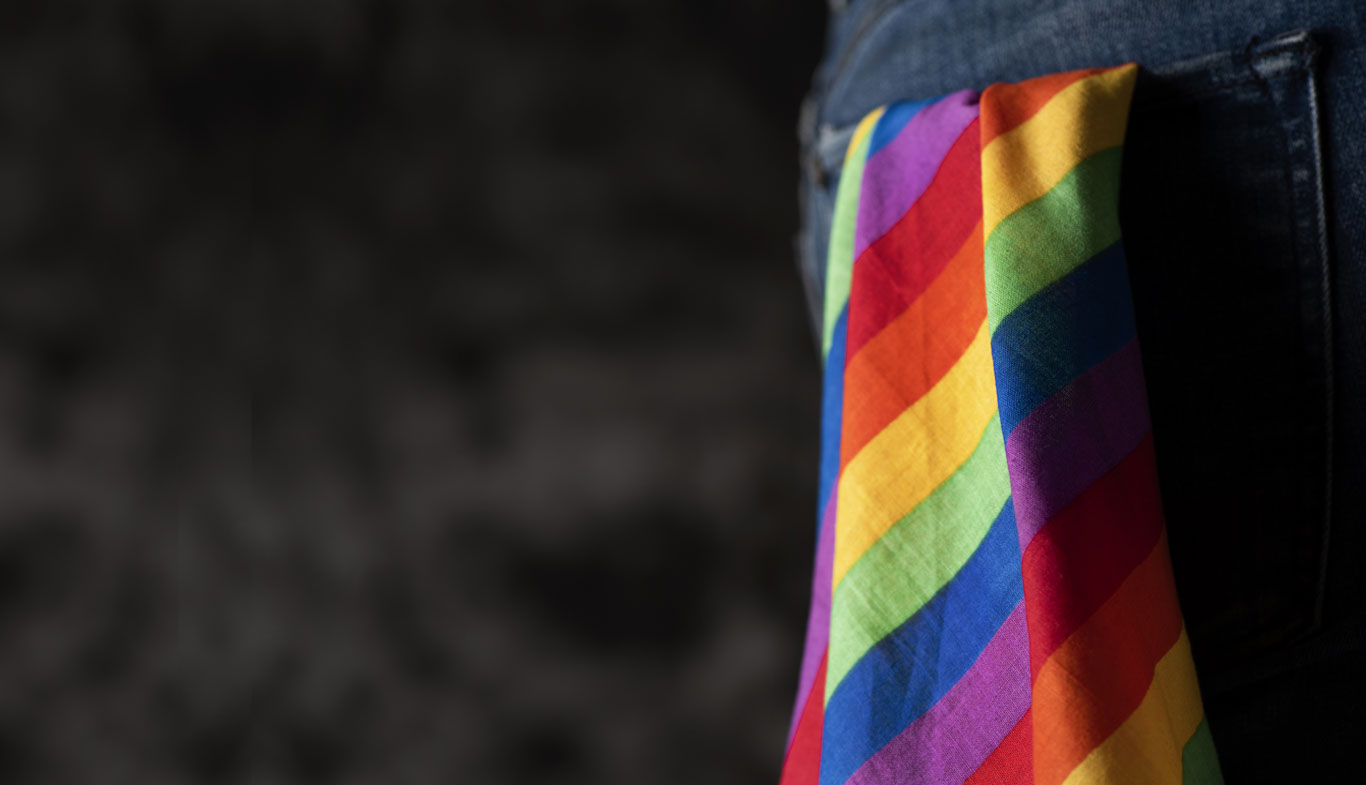
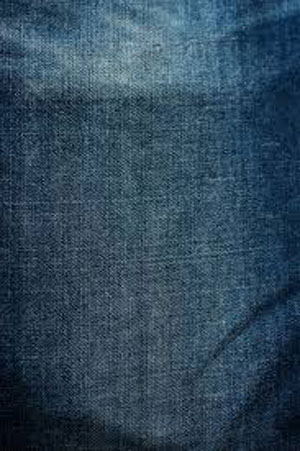
These were the words of Justice Edwin Cameron when a contingent of 14 NWU academics and students visited the Constitutional Court.
Constitutional Court art collection curator Francois Lion-Cachet and Justice Cameron, who has served for over 10 years as a Justice of the Court, hosted the group on 27 May 2019.
The group of students included the chairpersons of student LGBTIQ+ societies at the NWU. Organised by the university’s Gender Benefit Network, the visit included a tour of the Old Fort Prison, where many activists were detained during the apartheid period, the courtroom and the art collection.
Comprising some 600 works, the Constitutional Court’s art collection features dozens of artworks by prominent South African sculptors and artists whose work dates from the post-apartheid era.
A moving engagement
“The address by and engagement with Justice Edwin Cameron was deeply moving,” says Prof Robert Balfour, NWU deputy vice-chancellor for teaching and learning, who accompanied the group.
During the visit, Justice Cameron gave an account of how the rights of LGBTIQ+ people came to be recognised and established within South Africa's Constitution. He also argued that the critical point in the liberation of people identifying as LGBTIQ+ is the act of “coming out”, but that each decision to come out is personal since it instrumentalises a life towards a particular end.
Justice Cameron commended the university on supporting students and staff through bodies such as the Gender Benefit Network, which is a network of members of the NWU who provide financial and other support for the student societies on the three campuses.
Struggling for equality
He also talked about the difficult struggle for equality. He said throughout the world, especially in Africa, there are many examples of countries where oppression, victimisation and marginalisation of gay people is perpetrated by the state through the judiciary and other arms of government. This is characterised by the criminalisation of sexual orientation and, very often, the abuse of human rights.
The visit concluded with a question-and-answer session during which Justice Cameron presented a book featuring the Constitutional Court’s art collection to Robert.
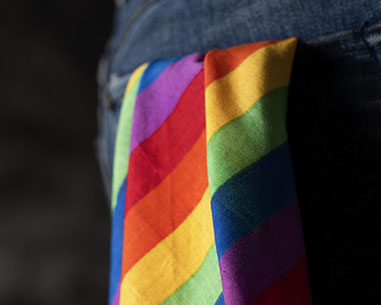
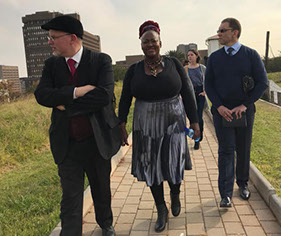
Prof Robert Balfour (left) recently accompanied a group of NWU academics and students to the Constitutional Court.
With him in front are NWU gallery and art collection curator Amohelang Mohajane (centre) and Dr Jacques Rothmann from Sociology. Their visit included a tour of the Old Fort Prison where many activitists, including Nelson, were detained during the apartheid period.
The struggle for equality is a beautiful struggle; a worthwhile struggle, not just for ourselves but for our societies and for the future.
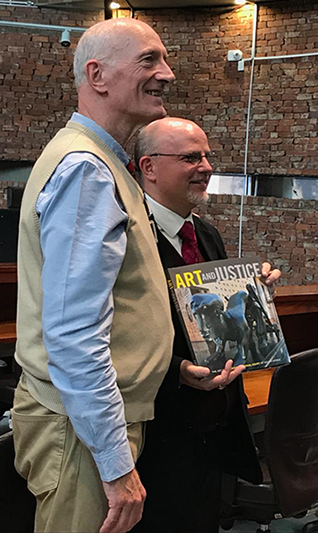
Justice Edwin Cameron presents Prof Robert Balfour deputy vice-chancellor for teaching and learning with Art and Justice, a book featuring the Constitutional Court’s art collection.
Ensuring
EQUALITY
– a ‘beautiful and worthwhile struggle’
Read the full article here.

![]() SCROLL
SCROLL
![]() SCROLL
SCROLL
![]() SCROLL
SCROLL